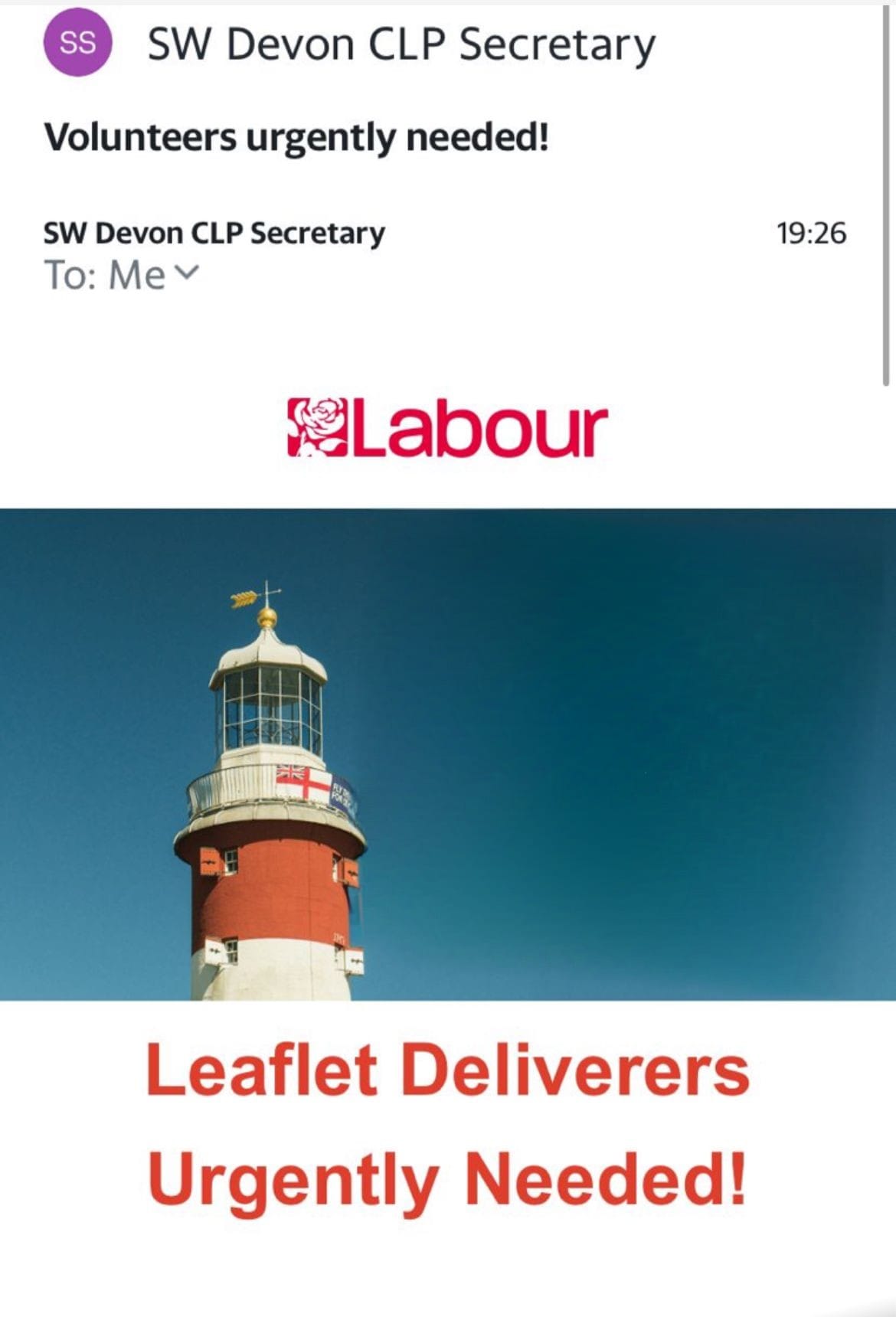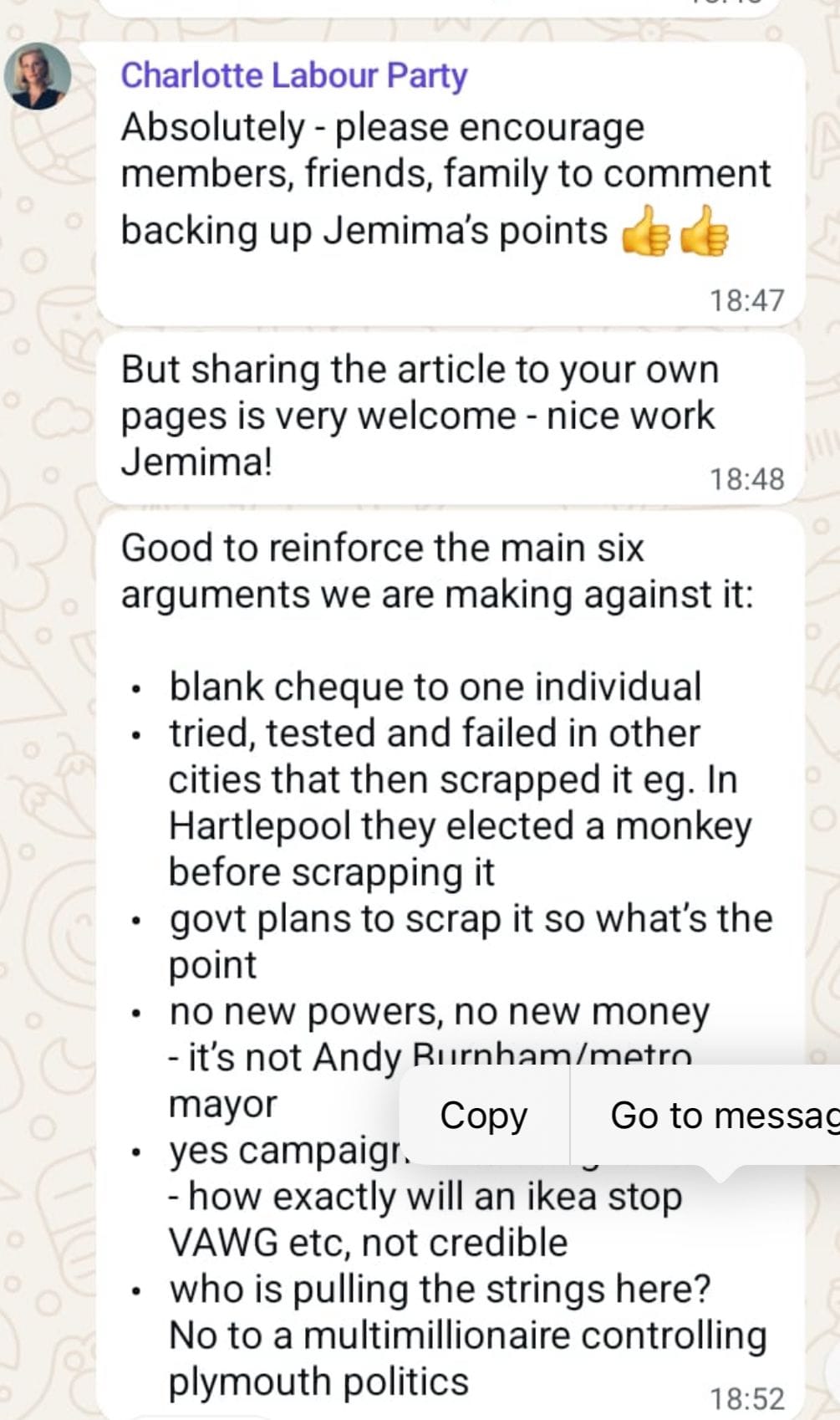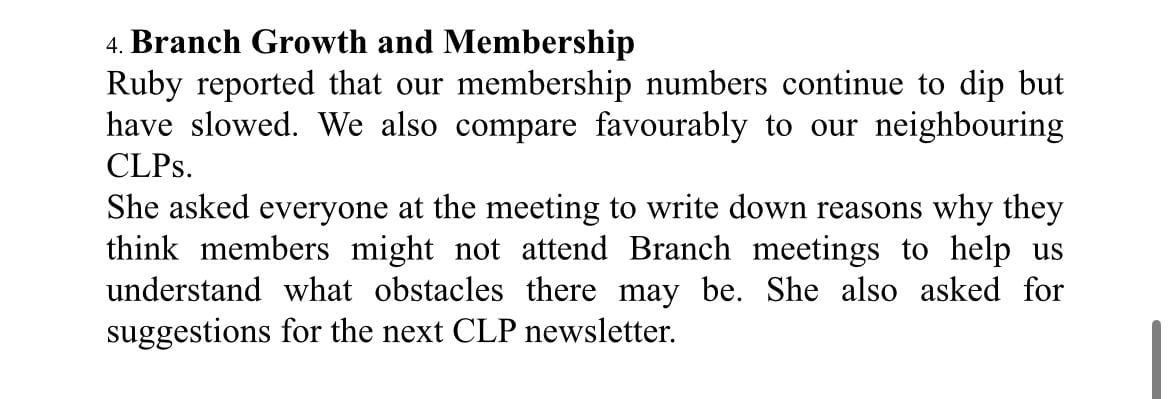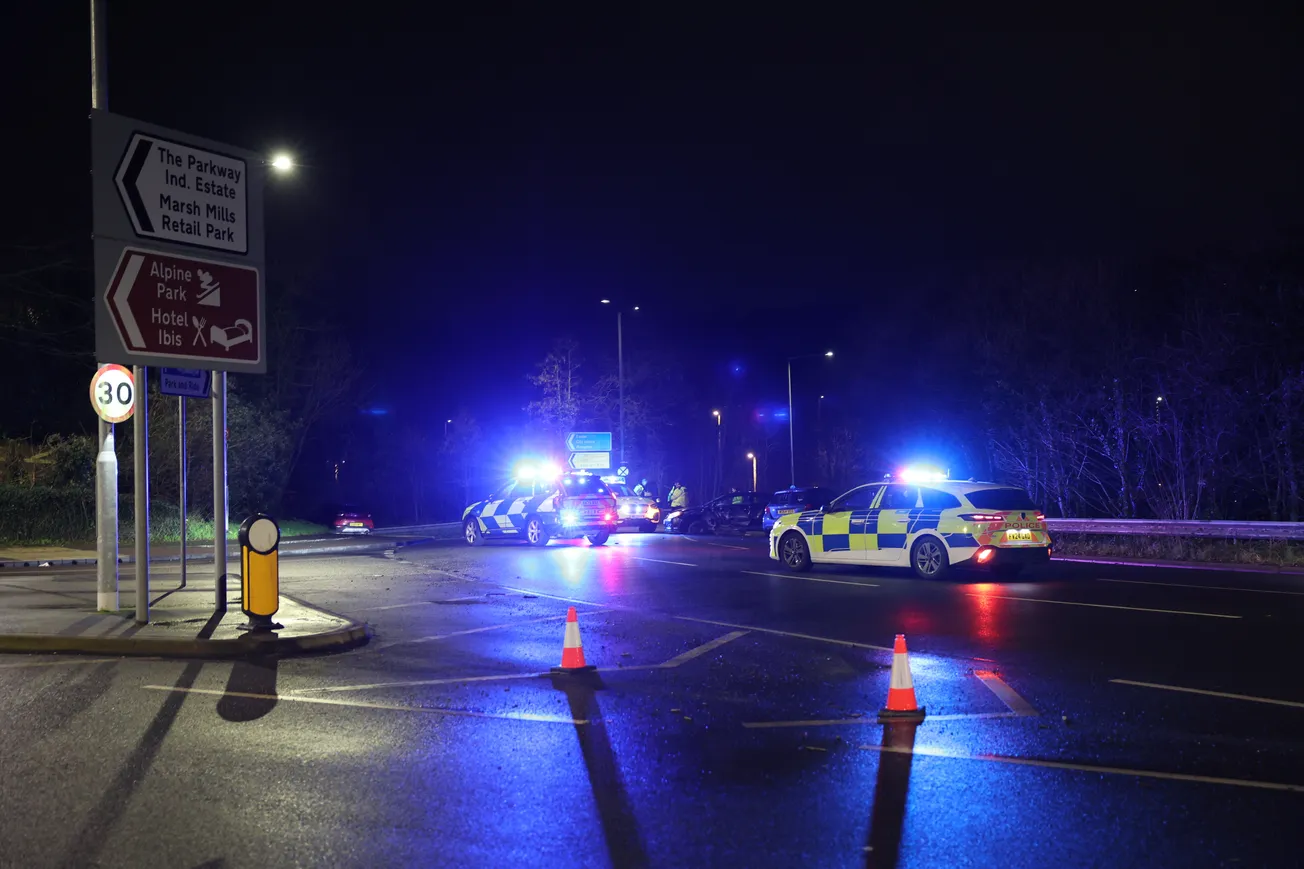As Plymouth's mayoral referendum approaches, Labour MPs Luke Pollard and Fred Thomas, along with Labour Council Leader Tudor Evans and his Labour councillors are intensifying their campaign aimed at preventing Plymouth residents from choosing their own city leader.
But with just weeks remaining until the July 17th vote, the question remains does Plymouth still have belief in Labour?
Plymouth has faced mounting challenges in recent weeks, with visible signs of decline across the city from floods due to blocked drains, to an increase in violence on our streets.
Yet during this critical period, Council Leader Tudor Evans has been spotted distributing leaflets for the Labour-backed "Plymouth Knows Better" campaign opposing the mayoral referendum.
Plymouth Plus has received information from concerned Labour Party insiders who question their party's current direction. According to confidential sources, Labour held a major campaign briefing on Friday, June 6th at Lockyer Hall on Alfred Street, where party leadership outlined their anti-mayoral campaign strategy to activists.

Internal emails and WhatsApp messages shared with Plymouth Plus reveal extensive planning for canvassing and leaflet distribution sessions leading up to polling day on July 17th.

Deputy Council Leader Jemima Laing was observed by a reader staging a brief photo opportunity last Thursday, where she posed for a canvass photo in Stoke before quickly departing the scene without delivering a single leaflet.
Notably, Councillor Charlotte Holloway, whose low attendance at council meetings has resulted in her nickname “Half a job Holloway”, appears to have ample time for campaigning in an attempt to convince Plymothians to side with Plymouth Labour and vote No in the upcoming referendum.
Recent videos released by the campaign which feature her voice show questionable tactics, with fellow Labour Councillor Jeremy Goblin seen filming these videos.
As previously reported by Plymouth Plus, Labour's campaign appears to be built on fundamental misinformation about the mayoral role itself. Despite claims that the position is being "scrapped," government policy makes clear this is not the case.
Our comprehensive research confirmed that:
Whilst the Government is ending mayoral devolution for individual councils, it is not banning directly elected mayors created pursuant to the Local Government Act 2000. The Yes campaign accurately points out that Plymouth's referendum is about choosing a leadership model, not securing a devolution deal. Councillors suggesting the role is being scrapped are misrepresenting the Government's policy, which actually supports expanding regional mayors, not reducing the number of city mayors.
This deliberate misrepresentation of the facts by Plymouth Knows Better appears designed to manipulate and misinform Plymouth voters about their democratic choices.
The Plymouth Labour campaign photos reveal telling signs of Labour's organisational challenges. Images consistently show smaller groups than in previous election cycles, predominantly featuring councillors rather than volunteer activists. This observation aligns with leaked internal Constituency Labour Party meeting minutes documenting declining membership numbers.

Resident reactions to Labour's sudden campaign push have been varied. One Plymouth Plus reader appreciated seeing their councillor engaging with the community but questioned the timing:
"It's great to see councillors out talking to us, but why does this just have to be when there's an election on?"
Another resident expressed frustration with the campaign's narrow focus:
"I tried to speak to my Labour councillor about parking in my area, but all he wanted to tell me about was why I should vote no to a Mayor."
For some voters, Labour's campaign tactics have backfired entirely:
"I have been a Labour voter all my life, but I'll be voting Yes in the referendum on July 17th to give Plymouth a chance to choose the leader."
With Plymouth's mayoral referendum fast approaching, Labour's concentrated opposition campaign raises questions about democratic choice and local governance. As residents prepare to vote, they face a fundamental question: should Plymouth continue with its current leadership structure, or embrace the opportunity to directly elect their city's leader?
But perhaps the deeper question emerging from this campaign is whether Plymouth residents still trust Labour's leadership at all. With evidence of misinformation campaigns, declining grassroots support, and councillors prioritising political manoeuvring over addressing the city's mounting problems, the question remains: does anyone trust Labour anymore?
Sign up for free below to get notified with all the latest breaking news from Plymouth Plus.





